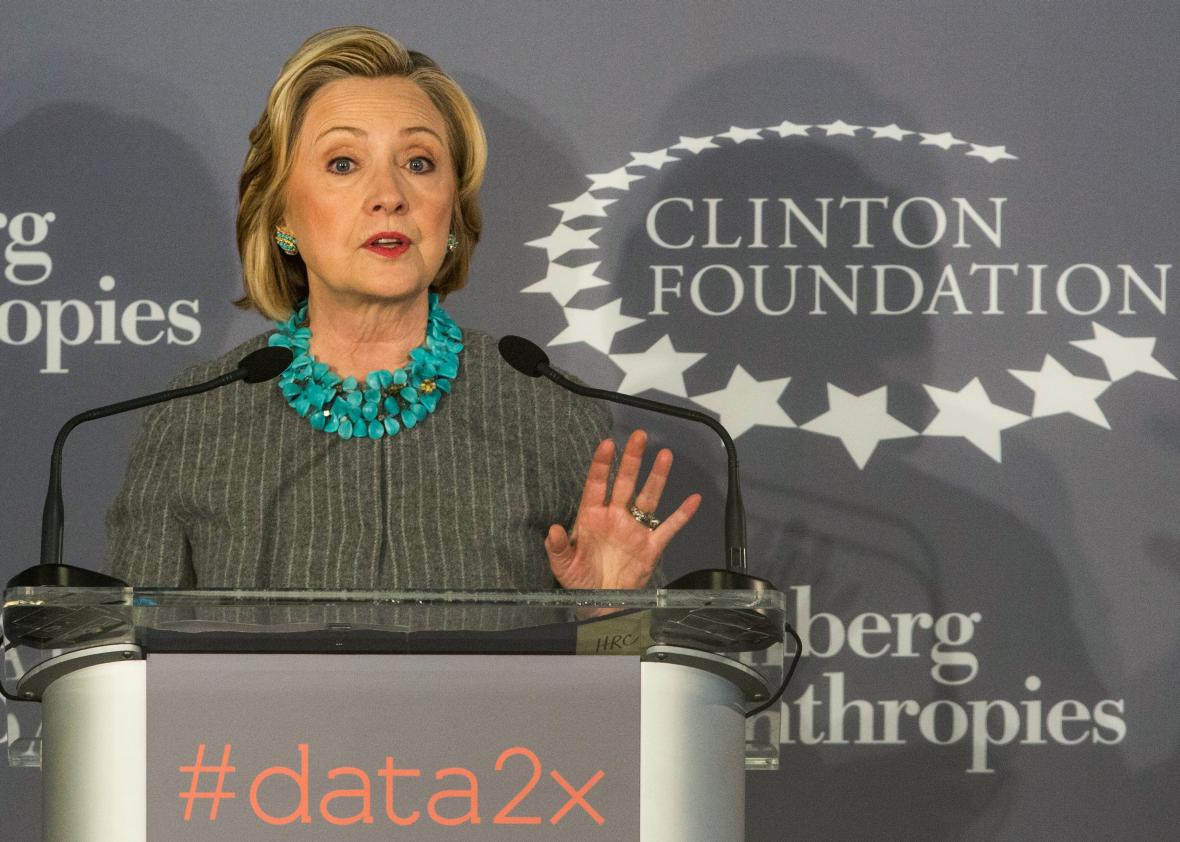Bill Clinton announced Thursday that the Clinton Foundation will stop accepting foreign and corporate donations if Hillary wins in November. The former president also said that he will stop giving paid speeches between now and Election Day, and that he would step down from the foundation’s board if his wife prevails in the general election.
That’s a good start, but it doesn’t go far enough.
The decision would limit—though not eliminate—the conflicts of interest, both perceived and real, that would be created by a global foundation headed by the man who was the 42nd president of the United States and the woman who would be the nation’s 45th. U.S. election law bars a candidate from accepting donations from foreign entities and corporations, but it makes no such restrictions on who can and cannot cut a check to the family foundation of that same candidate. While the Clintons are now promising to build that firewall for themselves if they win the White House, this announcement does nothing to prevent foreign entities from splashing the foundation pot during the final months of the general election.
The Clintons’ cozy relationship with their foundation’s global patrons was a problem when Hillary was secretary of state and it is a problem now that she’s running for president. And it would remain one if she ends up in the White House, since the foundation is still actively accepting donations today, when she is the overwhelming favorite to get there. You can still believe Donald Trump would be a far worse president—one with even bigger and more dangerous conflicts of interest—and acknowledge that this is a legitimate issue of concern about Clinton.
Take, for example, the recently released State Department emails that highlight the overlapping interests between the Clinton Foundation and the Hillary-led agency, or the story of the wealthy foundation donor who just so happened to land himself a plum spot on a sensitive government intelligence advisory panel after Hillary became secretary of state. Did the donors write a check to the foundation because their interests overlap? Or do their interests align because the donor cut that check? Chicken, meet egg. But you don’t need to believe the Clintons are guilty of intentionally engaging in quid pro quo (though it’s not crazy to think they may have) to know that there is something wrong with a dynamic where it is nearly impossible to prove that they did, or even that they didn’t.
Even if Hillary were somehow able to completely separate the donations—to say nothing of her and her husband’s speaking fees, which have often come from many of the same corporations who fund their family foundation—from her official decision-making, she simply has no way of preventing the appearance of pay for play. And the mere perception of access matters, both in the financial marketplace and the political one. The Clintons are too smart not to realize that. They didn’t create our flawed system, but they have proved masters at working within it.
The Clinton Foundation has done admirable work promoting global health and human rights around the globe, and it and its donors should be lauded for that. But as long as Hillary Clinton is either running for the White House or running the country from inside it, she and her husband should temporarily shutter their foundation. If their donors are truly being driven only by altruism—and not by access—there is no reason they wouldn’t find another nonprofit for their charitable contributions during the next four or eight years. Hillary and Bill, meanwhile, would be free to focus on making the world a better place from inside the highest office in the land.
